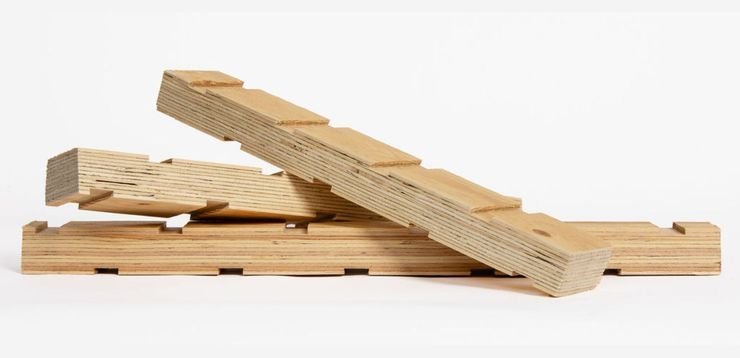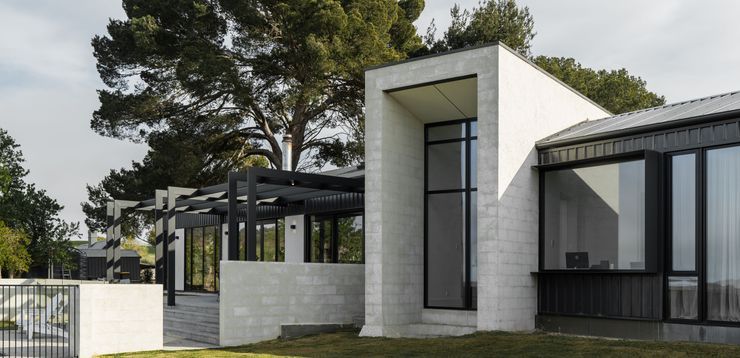Acrylic solid surfaces offer a blend of durability and versatility, making them a popular choice for both residential and commercial spaces. With their seamless finish, resistance to stains and scratches, and ability to be moulded into various shapes, these surfaces provide not only aesthetic appeal but also long-lasting functionality. Commonly used in high traffic areas such as kitchens and bathrooms, these surfaces are favoured for their aesthetic, cost-effectiveness, ease of care, and long-term durability. To understand why you should consider integrating acrylic surfaces into your interior, we spoke to Hanex’ Ellyse Carnegie who shares the benefits, latest innovations and common misconceptions.
Key benefits of acrylic solid surfaces
With the ongoing debate around the dangers of silica, acrylic solid surfaces offer a silica-free option, shares Ellyse.
“Hanex Acrylic solid surfaces are composed of 70% natural minerals and 30% eco-friendly resin, combined to make a solid surface. The surfaces look and feel like natural stone, with added benefits of durability and versatility, and without the hefty price tag.”
Its resistance to impacts and scratches ensures lasting performance, and if damaged, minor marks can often be sanded out, restoring the surface to its original condition. Additionally, materials like Hanex can be heated and moulded into unique shapes, enabling creative designs that aren't possible with other materials.
“This means it can be joined seamlessly for a large surface area, making it hygienic because there are no joins for bacteria to grow in,” shares Ellyse. “The surface by nature is stain resistant and anti-bacterial, too.”
Hanex offers a wide colour palette inspired by nature, and a range of finishes, including matte, glossy and textured.
Ellyse says often people don’t realise Hanex solid acrylic can also be used for outdoor applications.
“It’s UV and weather-resistant meaning it can be used outside for cladding, commercial wall panels, floor panels, shower panels, commercial and residential kitchens, reception counters, backsplashes, laboratories, salons, pharmacies and hospitals, and restaurant tables.”
Unlike natural stone, acrylic solid surfaces require very little maintenance, and don't need to be resealed. That’s because the surface is non-porous, which means stains and spills are less likely to penetrate and cause long-term damage.
Latest innovations in acrylic surface technology
Innovations in acrylic solid surface technology have emerged in recent years, and have advanced the material’s functionality, aesthetics and sustainability.
Advances in the chemical composition of solid surfaces have led to surfaces that are even more resistant to scratches, impact and stains, shares Ellyse, and lower VOCs (volatile organic compounds) are ensuring the material is more environmentally friendly and healthier for indoor air quality. These factors make Hanex solid surfaces a more sustainable and eco-friendly choice compared to some other materials.
Aesthetic updates have also been introduced, including an enhanced colour and pattern range that features vibrant translucent and pearlescent finishes.
“Textured and three-dimensional surfaces are also a new trend, adding depth and visual interest,” adds Ellyse.
Common misconceptions about acrylic solid surfaces
Easily scratched or damaged: While not impervious to scratches, acrylic surfaces are generally durable. Minor scratches can often be sanded out or polished away. Their non-porous nature resists staining, and they are designed to withstand everyday wear and tear.
Plastic-like appearance: Hanex surfaces are made from natural minerals and resin, not plastic. They offer a high-quality appearance similar to natural stone
Limited colour and pattern options: Acrylic surfaces come in a wide array of colors, patterns, and finishes. Technological advancements have expanded design options, allowing for customisation and creative applications.
Difficult maintenance: Acrylic surfaces are low-maintenance and do not require special cleaning products. Regular cleaning with mild soap and water is sufficient, and they do not need sealing like stone products.
Heat sensitivity: Hanex surfaces can handle typical kitchen heat. However, like other materials, they should avoid direct, sustained high temperatures to maintain their appearance and durability.
Luxury high cost: While some solid surfaces can be expensive, Hanex acrylic surfaces are competitively priced, making them an accessible choice for many projects.
Explore acrylic solid surfaces by Hanex












